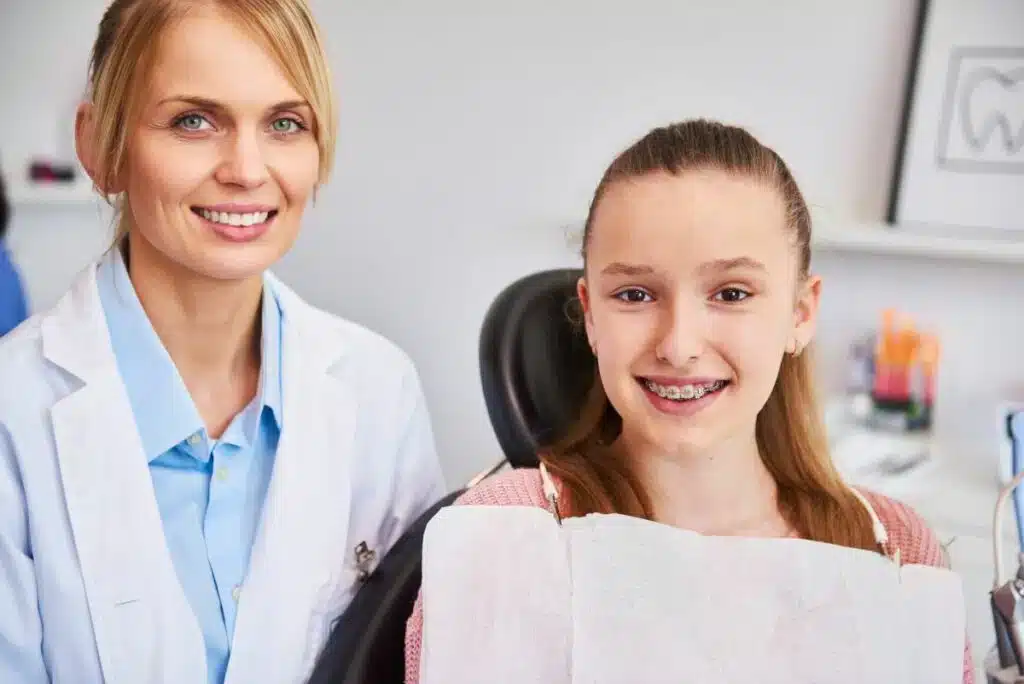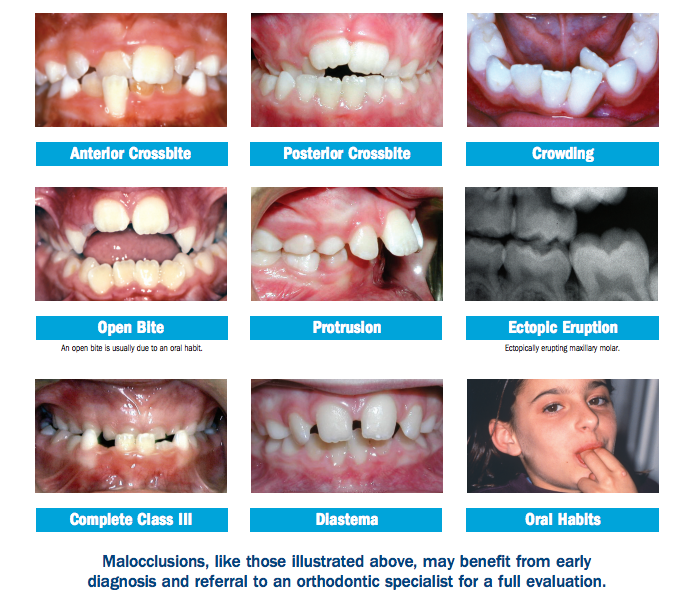Our Causey Orthodontics Diaries
Our Causey Orthodontics Diaries
Blog Article
3 Simple Techniques For Causey Orthodontics
Table of ContentsThe smart Trick of Causey Orthodontics That Nobody is DiscussingThe Causey Orthodontics IdeasFacts About Causey Orthodontics Uncovered5 Simple Techniques For Causey OrthodonticsGetting My Causey Orthodontics To WorkUnknown Facts About Causey OrthodonticsExamine This Report about Causey Orthodontics
What is the difference between a dentist and an orthodontist? All dental practitioners, including orthodontists, treat the teeth, gums, jaw and nerves.
Orthodontists and dental experts both give oral look after individuals. Orthodontists can function in an oral workplace and supply the very same treatments as other dental practitioners. So you can think of both physicians that deal with gum and teeth troubles. The main difference is that becoming an orthodontist calls for a certain specialized in dealing with the imbalance of the teeth and jaw.
Rumored Buzz on Causey Orthodontics
An orthodontist is a dental professional that has actually gone through training to specialize in the medical diagnosis, prevention and therapy of irregularities in the jaw and teeth. They can additionally identify prospective problems in teeth positioning that might develop when problems are left unattended (best orthodontist).
This includes all the essential education to come to be a basic dental expert. According to the American Student Dental Organization (ASDA), it suggests you will need to have either a Medical professional of Medication in Dental Care (DMD) or a Physician of Oral Surgery (DDS). To put it simply, orthodontists require to finish oral college and after that get an orthodontics specialty education and learning.
Some orthodontists additionally get their masters in craniofacial biology. orthodontist expert (https://www.localshq.com/directory/listingdisplay.aspx?lid=79462). Several oral institutions supply minimal orthopedic training and instruction, which is why general dental professionals require to visit orthodontic institution after graduation. Orthodontic residency programs use extensive training for this type of dental specialization. These programs focus on two details locations or techniques: Dentofacial Orthopedics: This research study concentrates on directing teeth and jaw development.
Top Guidelines Of Causey Orthodontics

 These consist of apparatus such as braces, retainers and Invisalign. So, what does an orthodontist do, and what do they concentrate on? The general objective of an orthodontist is to enhance a person's bite. Not every person is birthed with straight teeth, and an orthodontist will certainly ensure that people obtain uniformly spaced straight teeth.
These consist of apparatus such as braces, retainers and Invisalign. So, what does an orthodontist do, and what do they concentrate on? The general objective of an orthodontist is to enhance a person's bite. Not every person is birthed with straight teeth, and an orthodontist will certainly ensure that people obtain uniformly spaced straight teeth.
Some Known Incorrect Statements About Causey Orthodontics
The American Organization of Orthodontists recommends your initial check up by age 7. You'll need to see your orthodontist if you have a misalignment in your teeth, likewise referred to as malocclusion. If you see uneven bite patterns, a somewhat irregular jaw, or when your teeth are chock-full, you will likely need orthodontic therapy.
In addition, we offer adjustable treatment schedules, versatile settlement choices and a fun, enjoyable experience.
An orthodontist is a dental expert trained to detect, prevent, and deal with teeth and jaw irregularities. They deal with existing problems and are trained to recognize issues that might establish in the future. Orthodontists collaborate with people of any ages, from children to grownups. Individuals usually link a perfect smile with great wellness.
Not known Incorrect Statements About Causey Orthodontics
Malocclusion, or misaligned teeth, can result in dental concerns, consisting of tooth decay, periodontal illness, and hard or uncomfortable eating. However not every person is birthed with straight teeth. If you have a negative bite or big rooms in between your teeth, you might desire to seek advice from a dental expert specializing in orthodontic treatment.
(Photo Credit Scores: DigitalVision/Getty Images) Orthodontists make use of repaired and removable dental tools, like dental braces, retainers, and bands, to alter the placement of teeth in your mouth. Orthodontic therapy is for oral problems, consisting of: Jagged teethBite troubles, like an overbite or an underbiteCrowded teeth or teeth that are also much apartJaw misalignmentThe goal of orthodontic therapy is to improve your bite.
A Biased View of Causey Orthodontics

, however not all dental practitioners are orthodontists. They focus on 2 areas: Exactly how to properly and securely move teeth How to properly direct development in the teeth, jaw, and faceOnce an orthodontist has actually finished training, they have the option to become board licensed.
Malocclusion leads to tooth congestion, a twisted jaw, or irregular bite patterns. Malocclusion is normally treated with: Your orthodontist attaches metal, ceramic, or plastic square bonds to your teeth.
The Buzz on Causey Orthodontics
If you have only small malocclusion, you might have the ability to make use of clear braces, called aligners, instead of traditional braces. Some people require a headgear to help relocate teeth right into line with pressure from outside the mouth. After dental braces or aligners, you'll require to use a retainer. A retainer is a custom-made device that keeps your teeth in place.
Report this page